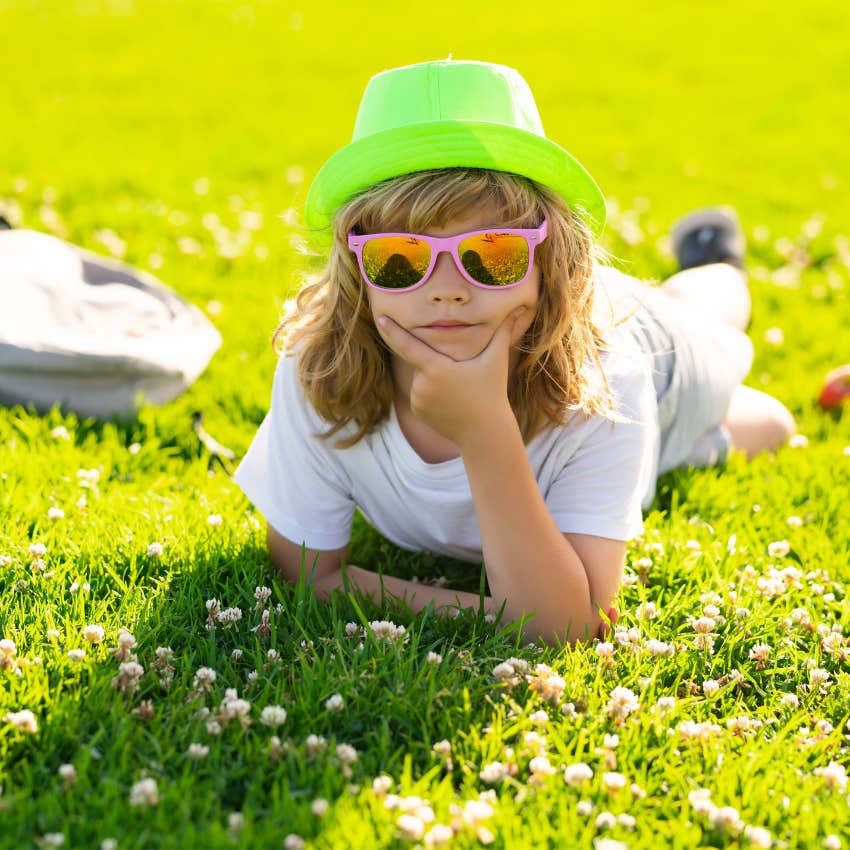Woman Explains The Biggest Downside To Summer That Has Many People Feeling Guilty — But Shouldn't
What's to feel guilty about when the weather is perfect?
 Mix and Match Studio / Shutterstock.com
Mix and Match Studio / Shutterstock.com If you’re not outside during every waking moment of the summer, trust me — you’re not doing anything wrong.
There’s no reason to feel guilty for staying inside, even on a sunny day. Creator Jess Huntsman shared exactly that in a recent TikTok.
“Don’t feel bad about being inside on a nice day,” she said, “especially if you need a break or rest.”
Huntsman explained the ‘sunshine guilt’ many people experience during the summer and why you shouldn’t let it bother you.
“I’m gonna speak on behalf of people who experience sunshine guilt,” Huntsman started in her video, “When it’s a sunny day, or it’s nice outside, and it hasn’t been for a long time, you’re kind of at your wit's end of doing things.”
When your friends and family share pictures from the beach or pool, it's natural to feel guilty for just wanting to sit in your air-conditioned living room. Those long winter months, you swore you'd spend all your free time outside as soon as it got warm, and then you're hit with the guilt of not enjoying those days when you can't muster the energy to do so. “You feel like you should be outside doing things, but you’d rather be inside,” she said, “then you experience this sunshine guilt.”
While it might be sunny and warm, you’re not obligated to spend every moment outside — ‘Days like this will happen again.’
It's recommended to get 10 to 30 minutes of midday sun a few times per week for optimal physical and mental health. The boost in Vitamin D can also reduce inflammation and support your immune system.
 Volodymyr TVERDOKHLIB / Shutterstock.com
Volodymyr TVERDOKHLIB / Shutterstock.com
So, it is important to get outside — whether for your physical health or your mental well-being — but you shouldn’t feel obligated to “make the most” of every waking moment of sunshine.
Enjoy a few minutes of “lizard time” outside, as Huntsman suggested — you just lay outside, relax, and breathe deeply for a few minutes. After that, you should feel guilt-free about spending the afternoon indoors.
Many people actually experience seasonal depression in the summer, in addition to this ‘sunshine guilt.’
A version of seasonal affective disorder, many people actually struggle with seasonal depression in the summertime — despite stereotypes about most experiencing this depression through gloomy winter months and rainy spring days.
“Most people are affected by the winter onset seasonal affective disorder (‘winter depression’). The depression that comes when days get longer, it’s darker and colder,” Dr. Jen Caudle shared on TikTok.
“However, summer depression is a real thing. They can have trouble sleeping or insomnia, appetite problems, you might lose weight, feel restless or agitated, or even anxiety.”
So, if you’re struggling to get out of bed, feel disconnected from the excitement of backyard barbecues and summer afternoons spent poolside, or simply don’t enjoy the heat and humidity this time of year brings, don’t be too hard on yourself.
“You don’t have to be outside just because it’s a beautiful day,” Huntsman said. “If you need the rest — rest. Don’t push yourself to have a ‘good’ day just because the sun is shining.'
Zayda Slabbekoorn is a News & Entertainment Writer at YourTango who focuses on health & wellness, social policy, and human interest stories.

